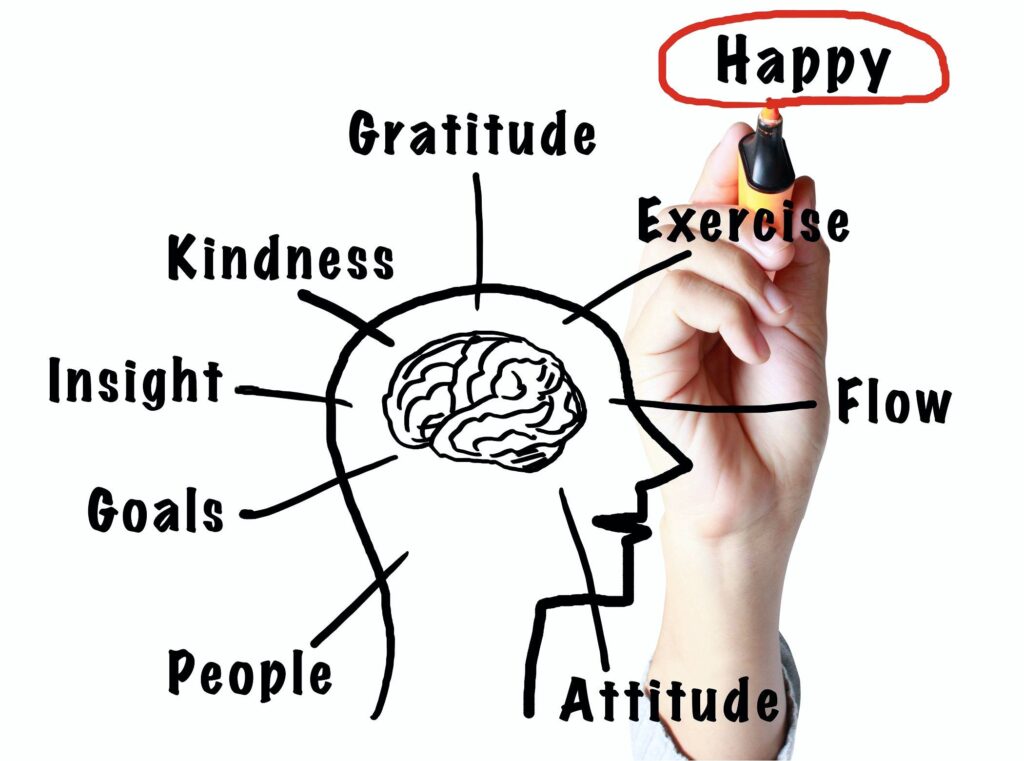Happiness is more than just a fleeting emotion; it is a science-backed state of well-being that influences health, relationships, and overall life satisfaction. By understanding the psychological and biological factors behind happiness, individuals can adopt simple yet powerful practices to cultivate lasting joy in their daily lives.

Understanding the Nature of Happiness
Happiness has long fascinated scientists, philosophers, and psychologists. It is not just a temporary emotion but a profound state of well-being that impacts multiple aspects of life, including health, relationships, and productivity. Research in positive psychology has uncovered key elements of happiness, revealing that joy is not only dependent on external circumstances but is also a skill that can be cultivated over time.
Moreover, happiness is deeply personal, varying from one individual to another. Some people find joy in material success, while others seek fulfillment in relationships or personal growth. Understanding what brings genuine happiness requires self-reflection and awareness. Importantly, scientific studies suggest that happiness is not merely about experiencing pleasure but also about finding meaning and purpose in life.
The Psychology Behind Happiness
Happiness is largely governed by brain chemistry. Neurotransmitters such as dopamine, serotonin, and endorphins play essential roles in creating positive emotions and reinforcing behaviors that promote well-being. These chemicals act as messengers, influencing mood, motivation, and overall emotional stability.
Psychologists categorize happiness into two types: hedonic and eudaimonic. Hedonic happiness is derived from pleasure, comfort, and enjoyable experiences. On the other hand, eudaimonic happiness comes from leading a meaningful life, pursuing goals, and fostering deep connections with others. While hedonic happiness is temporary, eudaimonic happiness tends to be long-lasting and more fulfilling.
Understanding these two types of happiness can help individuals balance immediate pleasures with long-term satisfaction. By cultivating both, one can achieve a more stable and enduring sense of joy.
The Role of Genetics and Environment
Scientific research suggests that genetics influence happiness levels to some extent. Studies indicate that approximately 40% of happiness is determined by genetic factors. However, genes are not the sole determinant of well-being. Life circumstances and personal choices contribute significantly to overall happiness.
In fact, 50% of happiness is shaped by daily habits, social interactions, and environmental influences. This means that individuals have considerable control over their emotional well-being. While some people may have a natural predisposition for optimism, others can develop happiness-enhancing habits through conscious effort.
Importantly, the remaining 10% of happiness is influenced by external factors such as financial status, career success, or geographical location. Surprisingly, once basic needs are met, material wealth contributes only marginally to happiness. Instead, internal factors like mindset, gratitude, and purpose play a much more significant role.
Cultivating Happiness Through Daily Practices
The Power of Gratitude
Gratitude is a simple yet incredibly effective tool for increasing happiness. Studies show that individuals who consciously practice gratitude tend to experience greater life satisfaction, improved mental health, and stronger relationships. By regularly acknowledging the positive aspects of life, people shift their focus from what is lacking to what is abundant. This shift in perspective plays a crucial role in shaping a positive and resilient mindset.
One practical way to cultivate gratitude is by maintaining a gratitude journal. Writing down three things one is thankful for each day helps rewire the brain to recognize and appreciate the good. Over time, this practice fosters an optimistic outlook, making it easier to cope with stress and adversity.
The Impact of Mindfulness and Meditation
Mindfulness is the practice of being fully present in the moment, without judgment. It encourages individuals to focus on their thoughts, emotions, and surroundings with awareness rather than being overwhelmed by them. By practicing mindfulness, people can reduce stress, enhance emotional regulation, and cultivate a greater sense of inner peace.
Meditation, a core component of mindfulness, has been scientifically proven to lower cortisol levels—the hormone responsible for stress. Engaging in mindfulness exercises such as deep breathing, body scanning, or guided meditation allows individuals to develop greater self-awareness and emotional resilience. These practices create a sense of calm, helping people respond to challenges with clarity rather than reacting impulsively.
Furthermore, mindfulness enhances the ability to manage negative emotions. In today’s fast-paced world, many people experience stress, anxiety, and frustration. Without mindfulness, these emotions can quickly spiral out of control. However, individuals who incorporate mindfulness into their daily routines learn to acknowledge their emotions without becoming consumed by them. This ability to step back and observe feelings from a place of detachment allows for better emotional balance and improved decision-making.
The Influence of Social Connections
Building Strong Relationships
Humans are inherently social creatures, and the quality of relationships plays a crucial role in overall happiness. Scientific research suggests that individuals with strong social connections tend to be healthier, live longer, and experience higher levels of life satisfaction. While material success and personal achievements can bring temporary joy, deep and meaningful relationships create a lasting sense of fulfillment.
The Psychological Impact of Strong Relationships
Engaging in deep conversations, spending quality time with loved ones, and fostering friendships provide a profound sense of belonging. Humans thrive when they feel understood, valued, and connected to others. These interactions offer emotional support, reducing feelings of loneliness and isolation. Additionally, strong relationships act as a buffer against stress and adversity, helping individuals navigate life’s challenges with resilience.
When people have a support system, they are better equipped to handle setbacks. Whether it is a close friend offering words of encouragement or a family member providing comfort during difficult times, emotional support significantly impacts mental well-being. Social bonds create a foundation of security, allowing individuals to take risks, explore new opportunities, and pursue their passions without fear of complete isolation.
Furthermore, close relationships contribute to better physical health. Studies indicate that individuals with strong social ties have lower blood pressure, stronger immune systems, and a reduced risk of chronic illnesses such as heart disease. This connection between emotional and physical well-being reinforces the idea that happiness is deeply rooted in human connection.
Quality Over Quantity in Friendships
While having a broad social circle can be enjoyable, the depth of relationships matters more than the number of connections. A few genuine, supportive relationships hold more value than a large number of acquaintances. Deep and meaningful friendships create an environment where individuals feel safe to share their vulnerabilities, seek advice, and celebrate achievements without fear of judgment.
Moreover, authentic connections require effort and mutual investment. Simple gestures such as checking in on a friend, sending a thoughtful message, or making time for face-to-face interactions can strengthen relationships. With the rise of digital communication, maintaining relationships has become easier; however, prioritizing in-person interactions fosters deeper emotional connections.
The Role of Active Listening in Strengthening Bonds
Communication is a cornerstone of any strong relationship, and active listening plays a vital role in creating meaningful connections. When people feel heard and understood, they develop trust and a sense of belonging. Active listening involves being fully present in conversations, making eye contact, and responding with empathy.
The Role of Kindness and Altruism in Happiness
Performing acts of kindness is not just beneficial for others; it also has a profound impact on the giver’s well-being. Research shows that engaging in altruistic behaviors, such as volunteering or offering help, activates the brain’s reward system. This phenomenon, known as the “helper’s high,” leads to increased feelings of happiness and fulfillment.
How Kindness Strengthens Social Bonds
When people engage in acts of kindness, whether big or small, they strengthen social bonds. Simple gestures, such as holding the door open for a stranger or expressing appreciation to a colleague, create positive interactions that reinforce a sense of community. These small moments of kindness build trust, deepen connections, and foster an environment where individuals feel supported and valued.
Furthermore, kindness is contagious. When people witness or experience an act of generosity, they are more likely to pass it forward. This ripple effect creates a culture of compassion, encouraging more people to engage in positive social behaviors. Over time, communities built on kindness and empathy tend to be happier and more harmonious.
The Science Behind the Benefits of Altruism
Studies in neuroscience suggest that helping others releases dopamine and oxytocin—chemicals associated with happiness and bonding. This natural response explains why acts of generosity create a sense of warmth and joy. Moreover, regularly practicing kindness can reduce stress levels, lower blood pressure, and enhance overall mental health.
Additionally, altruism contributes to a sense of purpose. When individuals dedicate time to helping others, whether through charitable work, mentoring, or offering emotional support, they experience a greater sense of meaning in life. A strong sense of purpose is directly linked to increased happiness and long-term well-being.
Creating a Habit of Kindness and Deepening Relationships
Building strong relationships and practicing kindness require consistent effort. Developing habits that prioritize meaningful interactions and acts of generosity leads to long-term happiness.
- Express Gratitude Regularly – Acknowledging and appreciating the people in one’s life strengthens relationships and fosters deeper connections.
- Prioritize Quality Time – Making time for loved ones, engaging in meaningful conversations, and sharing experiences strengthen emotional bonds.
- Practice Small Acts of Kindness – Simple gestures, such as sending a thoughtful message, offering encouragement, or helping someone in need, create lasting positive effects.
- Engage in Volunteering – Giving back to the community creates a sense of fulfillment and enhances overall happiness.
By incorporating these habits into daily life, individuals can build stronger relationships, foster a culture of kindness, and create lasting joy. Happiness, after all, is deeply intertwined with the quality of human connections and the generosity of spirit.
The Science of Positive Thinking
Rewiring the Brain for Positivity
The brain’s ability to change, known as neuroplasticity, allows individuals to cultivate a more positive mindset. By consistently focusing on positive thoughts, practicing gratitude, and reframing negative experiences, one can strengthen neural pathways associated with happiness.
Techniques such as positive affirmations, visualization, and cognitive-behavioral strategies can help reshape thought patterns. Over time, these practices create a mental environment that fosters resilience and optimism.
Overcoming Negative Bias
The human brain naturally tends to focus more on negative experiences—a psychological tendency known as negativity bias. This evolutionary trait was beneficial for survival in ancient times but can be detrimental in modern life. Fortunately, individuals can train their minds to counteract this bias by actively recognizing and celebrating positive moments.
Practicing self-compassion, acknowledging achievements, and engaging in uplifting conversations are effective strategies for shifting focus from distressing thoughts to more encouraging ones. By challenging negative perceptions and fostering a mindset of abundance, individuals can create a more joyful and fulfilling life.

Finding Purpose and Meaning in Life
The Importance of Setting Goals
Having a sense of purpose significantly contributes to long-term happiness. Setting meaningful goals provides motivation, direction, and a sense of accomplishment. Whether personal or professional, goals that align with one’s values create a deep sense of fulfillment.
Moreover, pursuing goals offers a sense of progress and achievement, which boosts self-confidence. Even small accomplishments can generate positive emotions, reinforcing the desire to continue striving for success.
The Connection Between Purpose and Resilience
A strong sense of purpose helps individuals navigate life’s challenges with greater resilience. Research indicates that people who engage in meaningful pursuits experience lower stress levels and a greater sense of well-being. Whether through career, creative passions, or community involvement, finding purpose fosters deeper joy and satisfaction.
Engaging in activities that align with personal values not only enhances happiness but also contributes to a more fulfilling life. When individuals live with intention and direction, they are more likely to experience long-term well-being.
The happiness of your life depends upon the quality of your thoughts
Marcus Aurelius
Conclusion: A Holistic Approach to Happiness
Happiness is not a fixed state but a dynamic process shaped by thoughts, behaviors, and social interactions. By incorporating gratitude, mindfulness, exercise, and strong relationships into daily life, individuals can cultivate lasting joy.
Additionally, understanding the science behind happiness empowers people to take intentional steps toward a more fulfilling and meaningful existence. Ultimately, happiness is within reach for anyone willing to invest in positive habits and a purposeful mindset.
